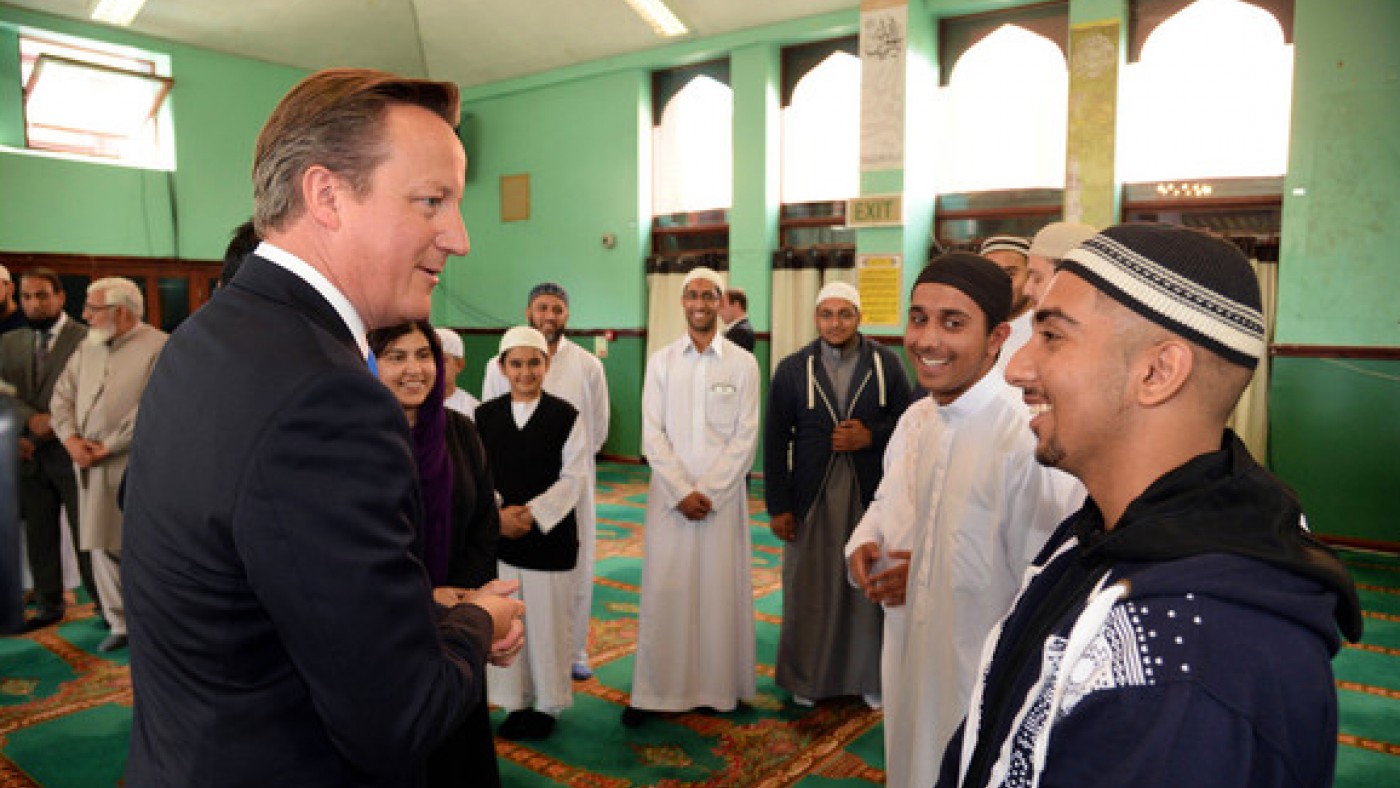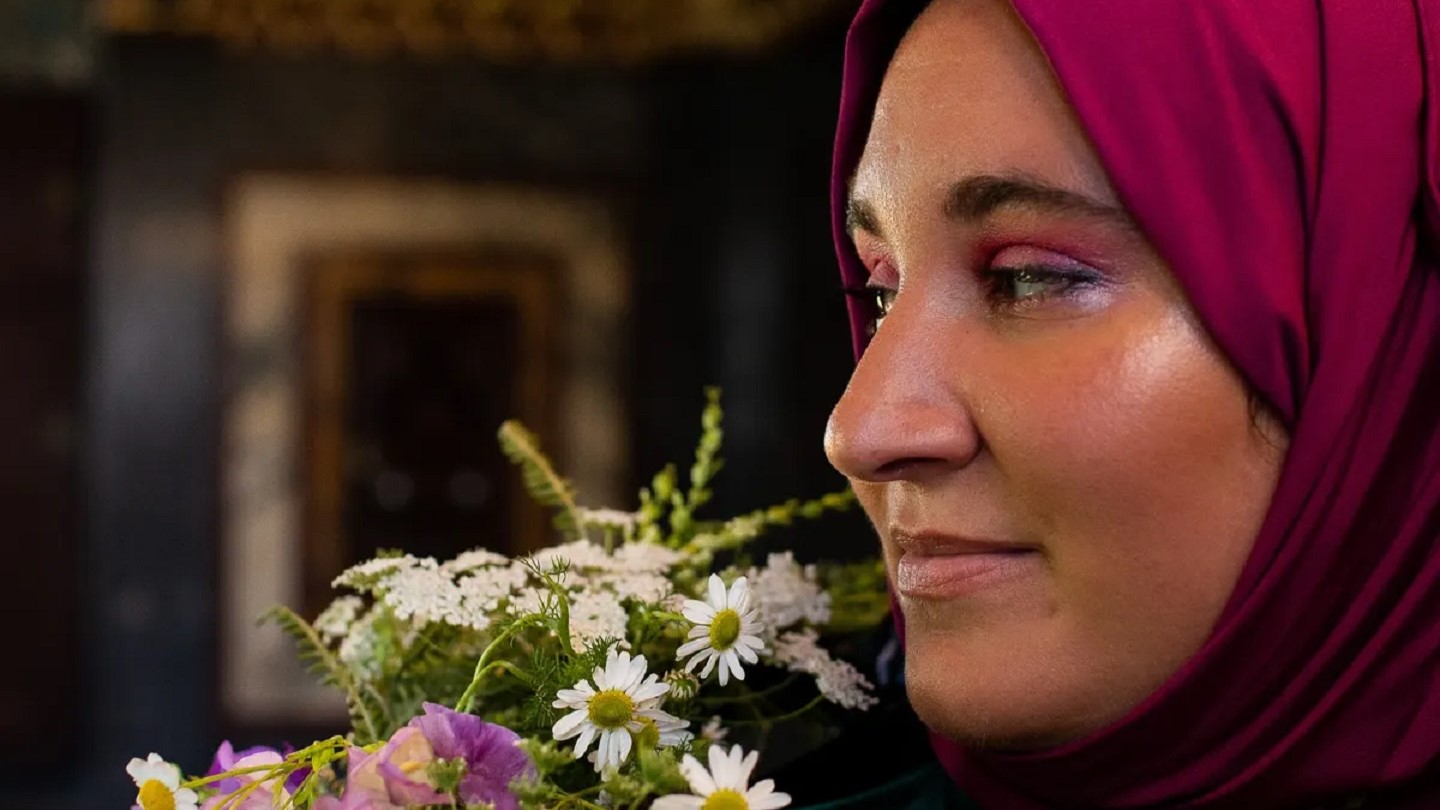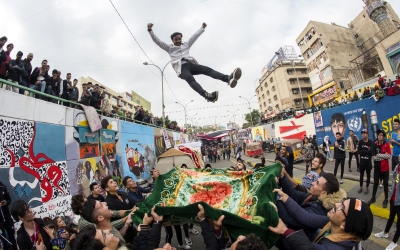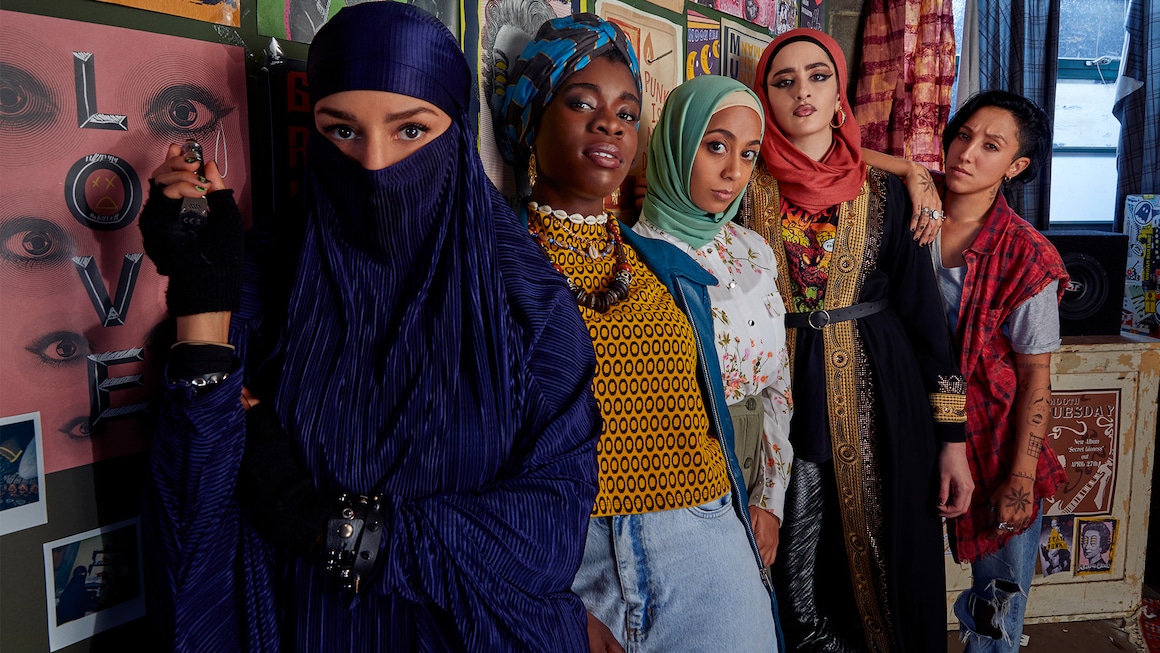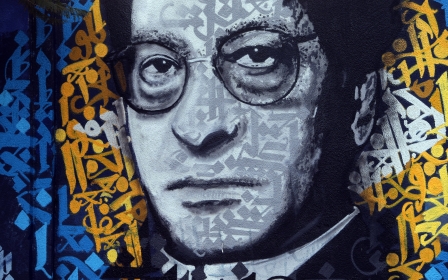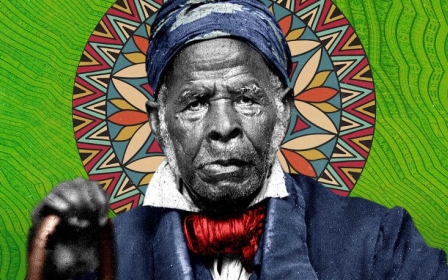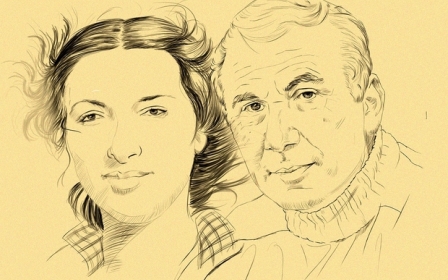Hanan Issa: The Welsh National Poet on her mission to elevate 'difficult women'
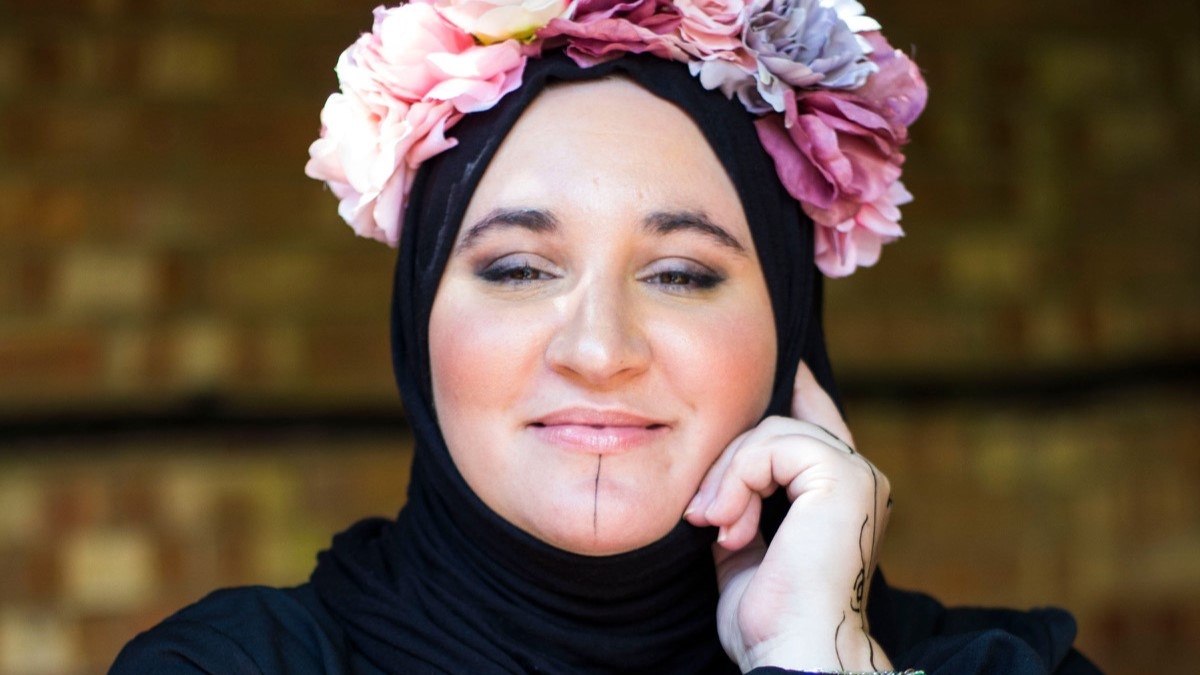
If there is anything that entices Hanan Issa more than poetry itself, it is the process by which she produces her work.
She compares it to cooking, noting that she spends a lot of time "marinating" before putting pen to paper.
"I could be washing the dishes, and the first line of a poem comes knocking and it's like 'Yes that's it!'" she tells Middle East Eye. "Sometimes you feel like you are just finding the poem rather than crafting it yourself."
Whatever the source of her inspiration, her poetry has been well received in her native land.
In July, Literature Wales, the national company for the development of literature in Wales, announced that the Welsh-Iraqi would become the fifth poet to hold the title of 'National Poet'; the first Muslim to do so.
New MEE newsletter: Jerusalem Dispatch
Sign up to get the latest insights and analysis on Israel-Palestine, alongside Turkey Unpacked and other MEE newsletters
Issa will serve a three-year term, representing the different communities and languages of the country.
The honour is the latest achievement in a career that has seen her work with the Bush Theatre and BBC Wales/Ffilm Cymru, as well as co-founding the Cardiff open-mic Where I'm Coming From.
Issa's love of poetry was instilled in her from a young age and she grew up surrounded by people who nurtured the talent.
"My grandparents, who I'm close to, are both white Welsh and they would always recite poetry to me," she says recalling times she would sit with them as they improvised poems.
"Now that they are both getting older, losing their memories, it's the kind of thing that I and my family want to record. It's those moments you really want to capture and keep."
Becoming a poet
Issa's experiences growing up, as well as her identity are important aspects of her poetry and her initial pieces were born out of indignation against the treatment of Islam and Muslims by those in power.
While Issa says that there was not a specific moment when she knew that she wanted to become a poet, she explains that both her Welsh upbringing and the political landscape of 21st-century Britain inspired her.
The first poem she shared was sparked by her frustration at former British Prime Minister David Cameron's comments on Muslims purportedly failing to integrate into wider society.
Until that moment, Issa felt that her poetry was a "private thing", but by making it public, she found that it resonated with others.
A constant question she says she asks herself is: "Who am I doing this for?", adding that she is keen to avoid addressing the "white gaze".
She recalls one instance when writing a book of poetry where she began producing a glossary of Islamic, Arabic and Welsh words she had used in her work, before realising that "Google is free" and that the onus remains on the reader to access such meanings.
"I write about what I want, but in a way that I feel can be relatable," she says.
Her sources of inspiration include Lebanese poet Zeina Hashem Beck and African-American poet Terrance Hayes, whom she says are unapologetic in speaking about the issues that are important to them.
Commenting on Hayes's work American Sonnets for My Past and Future Assassin, Issa tells MEE: "I think what is so inspiring is that he took a form like a sonnet, which is very Shakespearean, and decided to make it his own (and) give it an American twist.
"There is no falling short of the quality or the punch in the gut; he addresses tough issues in America - racism, masculinity, fatherhood, sexuality.
"He speaks on deep human imaginations and does it in such an intelligent way, that makes the craft of poetry shine. His book is like my talisman."
Merging Arabic and Welsh influences
Another source of inspiration is within language itself and the playfulness and symbolism it allows in expression.
The title of her 2019 collection My Body Can House Two Hearts provides a case in point.
"The Qur'an speaks about how Allah has not put for any man two hearts inside his body," she says before explaining: "The beauty of the language (is such that) the word for 'body' here is a masculine term.
"It was deliberate because if we are strictly speaking scientifically, a woman's body can house more than one heart because she can get pregnant.
"(I asked) does that mean that a woman is more capable of a deeper sense of spirituality because she can house more than one soul?
"The word for 'soul' is a feminine word, there is no masculine equivalent. It took me down this rabbit hole."
Issa also utilises a Welsh rhyming system, which she uses in the titular poem, known as Cynghanedd.
The poetic form is one of 24 kinds used in Wales and is distinct for its emphasis on harmony within each verse, which is made up of three lines.
According to Issa: "I don't see a lot of people talking about it, outside the prism of Wales and the Welsh language in particular, because the form has historically only been used by Welsh language users.
"It was a struggle (constructing my poem) in English (with it) because it has evolved with the Welsh language," she adds before explaining that she hopes her use of the form will encourage its use among other poets.
Lessons in Iraqi folklore
This interest in womanhood is also present in her poem Si'luwah's Song, which is inspired by a mythical figure found in Iraqi folklore.
Si'luwah is a legendary ocean creature from the group of spirits known as Si'lat. These are described in classical Arabic sources as a malicious class of jinn that can shapeshift into the human female form.
Belief in this group of spirits predates Islam in the Arabian peninsula, but Issa says that the narrative associated with characters such as Si'luwah can help challenge contemporary ideas about what it means to be a woman.
One excerpt from Si'luwah's Song reads:
My milky bitter tongue stops him running.
Afterwards I toss him back into the river.
Hnak ma hnak! I sing:
Look at every aged she belied with false compare.
"I love writing about women in a way that is unexpected," she says, explaining that she embraces the trope of the "difficult woman" because there is a prevailing expectation that Muslim women should make themselves polite, passive and acceptable. "I like the idea of writing work that speaks to that rebellious nature of creatures like Si'luwah."
Coming from a mixed-race background and taking inspiration from Iraqi folklore also allows Issa to connect with a side of her heritage she is geographically separated from.
'I think I have always clung to the folklore stories that my father told me or that I read'
- Hanan Issa, poet
Issa's family comes from the Nasiriyah region of Iraq, where people traditionally lived on river boats or on the land between the Tigris and Euphrates rivers. Not far upstream would have been the ancient city of Babylon and its famed hanging gardens.
It's a heritage she is proud of and one that she has been able to access through poetry and literature.
"I don't speak fluent Welsh and Arabic. I think I have always clung to the folklore stories that my father told me or that I read," she says, adding: "A lot of my connection has been built from what I've managed to glean from literature."
We Are Lady Parts
Besides her poetry, Issa was also part of the writers room for the British comedy show We Are Lady Parts, which first aired in 2018.
The show, which is created, written and directed by Nida Manzoor is about a Muslim women's punk band trying to leave their mark on the music industry.
Issa says she watched the pilot for the critically acclaimed show "10 times" because there was something "so hilarious and joyous about it".
The show's characters align with her own ideas of the "difficult woman" and Issa admits to fangirling "unashamedly".
"I felt seen in the rebelliousness," she says, explaining how she got involved in the show.
"I became friends with (Manzoor) who was directing Doctor Who when she came to Wales. She was in the process of getting a writers' room, and she said I just had to be there.
"It felt like a no-brainer. What is so incredible with Nida as a creative, she is mindful of what she is saying and about who."
Manzoor drew from a diverse spectrum of writers when establishing her writers' room in order to reflect the Muslim community as it actually is. That meant there were conservatives there, as well as Black participants; voices that have often been left out in conversations surrounding the Muslim community.
Her other work includes the BBC Wales short film The Golden Apple, which Issa wrote and directed.
The story, a magic realist drama, follows two Welsh brothers, Hasan and Lutfi, as they discover a golden apple growing on a tree in their local park. The fruit is said to bring eternal happiness to anyone who eats it.
Speaking of the film and its characters, she says: "I love mixing history and myth. I find that (to be) a comfortable space to talk about real issues.
"I wanted to get people scratching their heads. I wrote it pre-pandemic but we were all concerned about climate change, and it was very much in my consciousness about young people and their concerns."
In her mid-thirties, Issa's star is still rising. As recently as August, she was awarded the Hay Festival International Fellowship, which will introduce her work to more international audiences.
Serving as the Welsh National Poet until 2025, she intends to emphasise the potential that poetry has in helping people make sense of who they are and understand the world around them.
"More than anything, I want to capture the interest and inspiration of the public to see themselves in Welsh poetry and encourage a much more open sense of what Welshness is," she said upon becoming Wales's National Poet in July.
Middle East Eye delivers independent and unrivalled coverage and analysis of the Middle East, North Africa and beyond. To learn more about republishing this content and the associated fees, please fill out this form. More about MEE can be found here.


